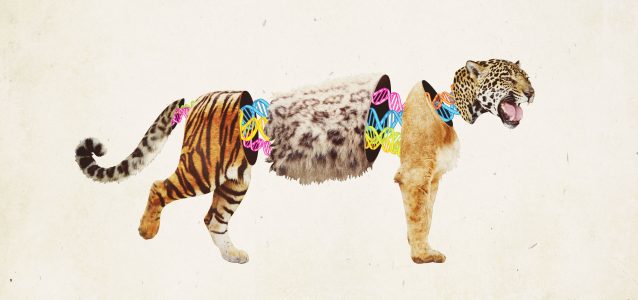Written by: Alice McClure
There is no way by which the events of the world can be directly transmitted or recorded in our brains; they are experienced and constructed in a highly subjective way, which is different in every individual to begin with, and differently reinterpreted or reexperienced whenever they are recollected. Our only truth is narrative truth, the stories we tell each other and ourselves – the stories we continually recategorize and refine (Oliver Sacks, 2017)
Our world comprises of very many sociocultural realities, all intertwined but evolving in different directions. Each reality is the result of complex interactions between the social, cultural and environmental elements within and across these. It’s hard to draw boundaries around these realities because they are so intertwined. It’s also impossible to understand them fully because there are simply too many possible interactions between these elements to document. Nevertheless, we continuously try to gain a deeper understanding of how these realities both influence and are impacted by global environmental challenges, especially within the age of the ‘Anthropocene’. I’ve been seeking to understand the working realities of groups of people involved in understanding and trying to solve issues related to climate variability and change in southern African cities. More specifically, I’ve been asking how individual working realities have evolved and strengthened over time to effectively respond to these issues (or not), as well as how these might open up to new, more collaborative styles of understanding complex problems and associated solutions. While recently reading a book by Oliver Sacks, in which he writes about Darwin’s observations of plants and earthworms, I was inspired to link my theoretical work rooted in social psychology with Darwin’s evolutionary biology, reflecting on our evolving working realities or cultures … This blog is the result of that inspiration.
If we think about more general socio-cultural realities, the differences in evolutionary courses are apparent. For example, the reality in which the person asking for spare change on the street is enmeshed compared with the reality of the person who spends ~GBP 500,000 on a baby shower… yes this did happen somewhere in the UK. These two very different people exist and act in a specific way because of the culmination of the decisions, actions, tools, guidance and relationships that have contributed to the evolution of their own realities. In many cases, these different realities have become strongholds of actions, ideas and values; echo chambers for a choir of similar, strong voices, and so evolution of the realities (e.g. from one generation to the next) unfolds in a fairly predictable way.
We at CSAG are doing our best to produce knowledge that is relevant and useful (or even better: usable) to deal with the climate-related issues at hand. Two apparent working realities or cultures, especially when juxtaposed, are those of the researcher, whose goal is to contemplate one fraction of the world at length and the government decision maker whose success stems from her ability to absorb information rapidly, make decisions then act quickly. Like more general human realities, the actions within these working cultures are founded on a history of very many elements including inter alia ideas, assumptions, communities of practice, tools, guidance etc., as well as the interactions between these elements. Within these contrasting cultures, different understandings of the same problem have sometimes evolved in parallel, diverging more often than converging. We would like to think that knowledge from our complex culture of writing, technology and academic concepts (i.e. research) finds its way into another starkly different and quickly evolving decision-making culture. We have come to learn that without mechanisms to integrate our scientific knowledge into another working reality, it becomes extinct.
I’ve been involved in several projects that have tried to take transdisciplinary engagements seriously. We defend the notion that the transdisciplinary research process is just as important as the final knowledge product. While I agree with this notion, I’ve also struggled to accept it without a critical eye… What exactly is it about the process that is so important? Why do we need to dedicate so much time and effort towards these processes when we’re dealing with such immediate issues? Surely there’s an easier way? I’m coming to realise, mostly by piecing together experiences and reflections of transdisciplinary engagements, that this type of research aims to spark and evolve new, shared human realities or cultures that adequately grapple with complex, multi-faceted problems, or at least create ways to integrate across the existing realities.
If we think about the history of our different working cultures, it helps us understand how each has evolved over time. Sparking new, evolutionary shifts within these existing working cultures, as well as creating novel shared working cultures, takes time, as well as sustained, intensive parameters. Experimental learning labs, multi-stakeholders dialogues, distillation discussions… all these processes enable the elements of our individual working cultures to be laid bare for review, criticism or validation within the context of a more appropriate, shared working culture. The variety of elements from these separate cultures, including knowledge and processes that have developed over time, are extremely important as they will always lay the foundation for a collaborative way of working within the ecotones between our cultures. These ecotones, if facilitated correctly, are characterised by generative contradictions, creativity and diversity, thereby catalysing an abundance of ideas and solutions. The contradictions that arise within these spaces also lead to critical feedbacks that support slow fine-tuning in our specific working cultures (e.g. climate science) to support relevant evolution.
So yes, the processes through which we create these collaborative working cultures that are equipped to respond to complex problems are equally as important as the products. And the more time we make for the ecotone spaces, the better we will get at solving these multi-faceted problems. When thinking about the long history beneath our current working cultures (e.g. disciplines, departments or organisations), it is easy to understand why the evolution of a new, shared culture requires so much time, effort and engagement.
